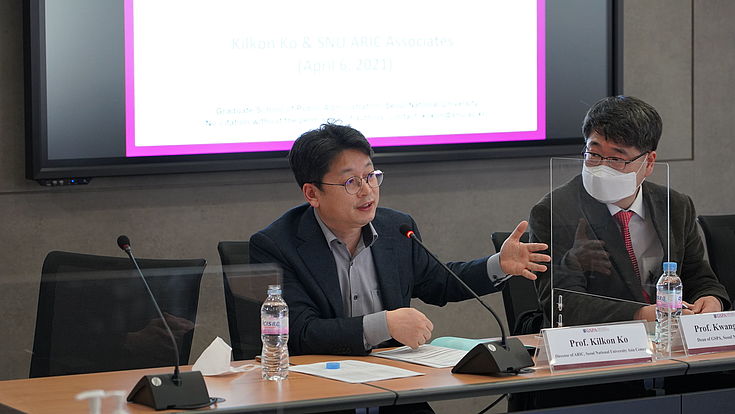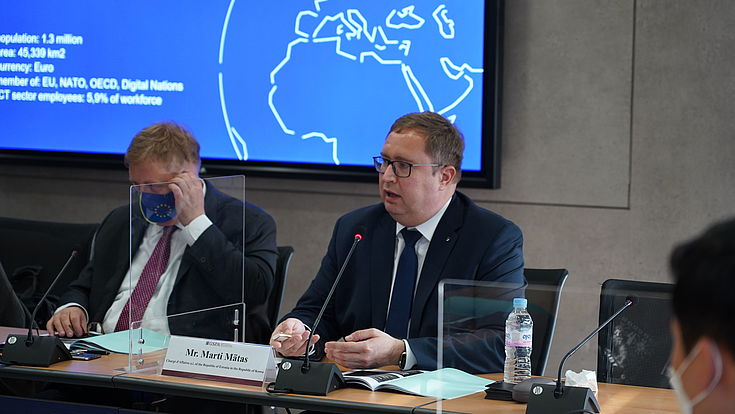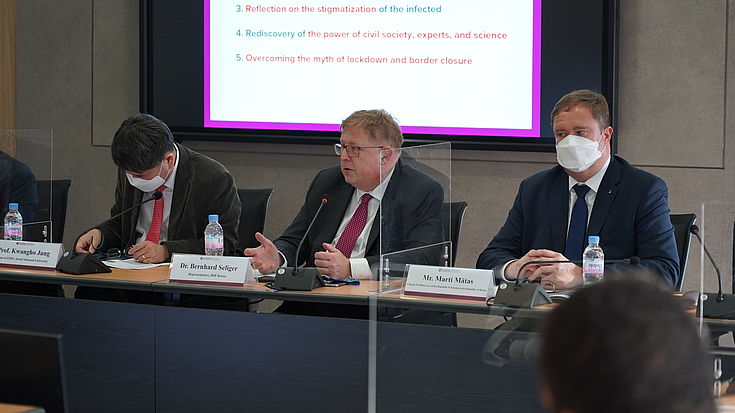Seminar
COVID-19 - Europe, Asia and Public Administration

Tracking Policy and Privacy Protection in South Korea
The seminar started with the opening remarks of Prof. Kwangho Jung, the dean of GSPA, and Prof. Kilkon Ko, the Director of SNU ARIC had a first presentation about the COVID-19 tracking policy and privacy infringement of South Korea. He said, “the SARS and MERS trends in the past have revamped laws on South Korea's digital tracking system and privacy violations, and these experiences have helped in the active response of Corona 19.” He introduced three reasons to explain the character of COVID-19 responses of Korea. First, high-level cognition of multiple actors and citizenship not to jeopardize others. Second, immersed ICTs in the daily life of citizens and public administration, and lastly, collaboration among the multiple actors such as IT systems developed by citizens, network governance, and complex adaptive system. However, still there are limitations to the “New Normal.” Smart protection of privacy, reflection on the stigmatization of the infected and find the way to expel the ghost of ‘Statism.’ Prof. Ko indicate that we still need to restore the value of privacy, human rights, and global alliance in this pandemic.

E-Government Systems in Estonia
The second presentation was about the ‘Digitalization, e-government and the fight against Corona-lessons from Estonia’ by Marti Mätas, the Chargé d’Affaires a.i of the Estonian Embassy. The Estonian government introduced an e-government system since 2000, and 99% of technologies using blockchain are now treated as e-government systems, except in areas where human exchange is essential. Marti Mätas said “the E-government system has allowed them to response effectively to the COVID 19 outbreak” while emphasizing the efficiency and equality of E-government. In Estonia, e-government is a common understanding and the universal rule that even new government cannot change. Now, the Estonian e-government is looking forward to the future of a more proactive government, implement AI into the system, provide cross-border digital governance, and develop personalized medicine.

Challenges for Korea and Estonia
Dr. Seliger leads the discussion between this presentation. He had shrewd questions to highlight and challenges the public administration system of both Korean and Estonian. He raised questions about the South Korean government's way of responding to the COVID-19 administration, scientific proof of two weeks of quarantine, and insufficient vaccine coverage. And he cast doubt on the e-government system in Estonia. He disputed the basic trust of having e-identification, equality for non-citizens, and the limits of E-health. Lastly, the seminar was held to answer questions from students from SNU GSPA, and ended with the closing remarks of Prof. Jung.
